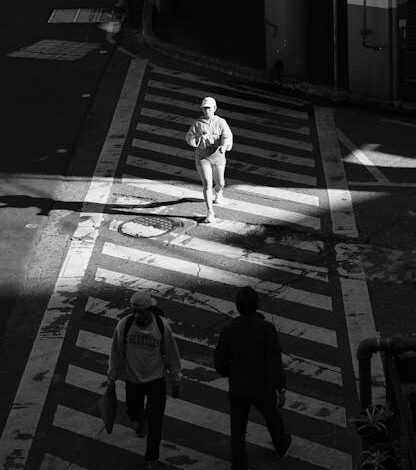The Flash of Brilliance: Estevao’s Early Mark

Ah, the beautiful game. It has this uncanny ability to swing from the exhilarating highs of early promise to the gut-wrenching lows of unexpected setbacks, sometimes all within a single ninety minutes. For Chelsea fans, this past week’s encounter against Qarabag was a microcosm of their season, a dizzying blend of youthful brilliance and familiar frustrations that left everyone scratching their heads and perhaps, a little heartbroken. It was a match that promised so much after a lightning-fast start, only to deliver a drawn result that felt, in many ways, like a missed opportunity.
Picture this: an away trip, under the lights, against an opponent known for their resilience on home turf. Chelsea needed a strong performance, a statement of intent. And for a glorious few minutes, it looked like they were delivering exactly that. Then, the script took a turn, serving up a narrative that has become all too common for the Blues faithful.
The Flash of Brilliance: Estevao’s Early Mark
There are moments in football that just make you sit up and take notice. Estevao Willian’s goal against Qarabag was undoubtedly one of them. The energy, the precision, the sheer audacity of a young player stepping onto a challenging European stage and making such an immediate impact – it was genuinely thrilling to witness. From the moment the ball left his foot, there was a sense of inevitability, a clean strike that found the back of the net and gave Chelsea precisely the start they needed.
This wasn’t just any goal; it was a testament to the raw talent that Chelsea has been diligently recruiting. Estevao, still so young, showed composure beyond his years. It hinted at a future where he could be a significant force for the club, a player capable of unlocking stubborn defenses and providing that vital spark. For a team often criticized for lacking a cutting edge, seeing a new face deliver such an emphatic opener was a shot of pure adrenaline.
The early lead instilled confidence, allowing Chelsea to settle into the game with a comfortable cushion. It felt like the kind of start that sets the tone for a dominant performance, an away victory firmly within their grasp. The tactical plan seemed to be clicking, the players were buzzing, and the travelling support were rightfully buoyant. This was the Chelsea many had hoped to see, ruthless and efficient, capitalising on their opportunities with clinical precision. But as we know, football has a cruel way of reminding you that nothing is ever truly guaranteed until the final whistle.
A Shadow Cast: Lavia’s Unfortunate Turn
Just as quickly as the euphoria of Estevao’s goal settled, a familiar, unwelcome feeling crept in. Romeo Lavia, the Belgian midfielder whose Chelsea career has thus far been a disheartening tale of injury setbacks, once again found himself on the sidelines. To see him clutching his hamstring, his face a picture of despair, was genuinely tough to watch. It wasn’t just a blow to Chelsea’s on-field performance; it was a deeply personal tragedy for a player desperate to prove his worth at Stamford Bridge.
Lavia’s arrival at Chelsea was met with considerable excitement. A dynamic, intelligent midfielder, he was seen as a key piece in the club’s long-term puzzle. Yet, he’s barely had a chance to lace up his boots, let alone make a sustained impact. Each time he edges closer to a return, another hurdle seems to appear, derailing his progress and leaving fans to wonder when, or if, they’ll truly see him in full flight.
The Lingering Injury Curse at Stamford Bridge
Lavia’s injury isn’t an isolated incident; it’s a symptom of a larger, more concerning trend at Chelsea. The club has been plagued by an injury crisis for what feels like an eternity. Key players consistently sidelined, rotations forced, momentum shattered – it’s a narrative that has defined far too much of their recent history. From established stars to promising youngsters, the treatment room at Cobham seems to be perpetually busy.
This persistent issue impacts everything: team cohesion, tactical consistency, and ultimately, results. It forces managers to adapt on the fly, often deploying players out of position or relying on less experienced options. While it offers opportunities for some, it fundamentally undermines the stability and continuity that every successful team requires. For Lavia, it’s particularly cruel, as he’s caught in a cycle of rehabilitation and brief returns, unable to build the fitness or rhythm necessary to thrive.
The Unraveling Advantage: Qarabag’s Resilience and Chelsea’s Struggles
With Lavia off and the game progressing, the initial spark that Estevao provided began to fade. Chelsea, despite their early lead, found themselves increasingly on the back foot. Qarabag, buoyed by their passionate home support, sensed a shift in momentum. They pressed harder, played with more urgency, and started to carve out chances. Their equalizer wasn’t a fluke; it was the result of sustained pressure and, crucially, Chelsea’s inability to maintain their composure and defensive solidity.
Conceding the equalizer felt like a punch to the gut. It wasn’t just the loss of two points; it was the psychological blow of letting a winning position slip away. Against a resilient opponent on their home turf, holding onto that lead was paramount, a demonstration of mental fortitude and tactical discipline. The fact that Chelsea couldn’t manage it raised familiar questions about the team’s maturity, its ability to manage a game, and its resilience under pressure. The early promise had evaporated, replaced by a sense of missed opportunity and lingering frustration.
Lessons from Baku: What Does This Draw Mean?
A draw away from home in Europe isn’t necessarily a disaster, but the context here makes it feel like one. When you take an early lead, especially against a team you’re expected to beat, anything less than three points feels like a failure. This result will undoubtedly prompt further scrutiny of Chelsea’s defensive organisation and their ability to see out games. Is it a lack of concentration? A tactical vulnerability? Or perhaps a reflection of the constant squad changes forced by injuries?
For a club with Chelsea’s ambitions, these dropped points are costly. They complicate pathways in European competitions and, more broadly, feed into the narrative of inconsistency that has plagued them. The lessons from Baku are clear: a flash of individual brilliance is not enough. Sustained team performance, mental toughness, and the ability to adapt to setbacks are what truly define a successful side. It’s about turning promise into consistent delivery, not just fleeting moments of excellence.
The trip to Qarabag encapsulated so much of Chelsea’s current predicament. There was the undeniable glimmer of hope in Estevao’s dazzling early strike, a clear sign of the talent being nurtured. But that hope was quickly tempered by the heartbreaking sight of Lavia once again succumbing to injury, a stark reminder of the chronic fitness issues plaguing the squad. And finally, the inability to hold onto a winning position underscored the team’s ongoing struggle for consistency and maturity. It’s a journey marked by these peaks and valleys, a constant test of patience for fans and a challenging puzzle for the coaching staff. Moving forward, the focus must shift from individual flashes to collective resilience, turning these frustrating draws into decisive victories, and hopefully, finding a solution to the dreaded injury curse.





